Dear Friends!
We are sharing with you a special interview this time, as a former artillery recon soldier, who have served together with the famous Parachute Regiment is contributing to our blog, by sharing his memories of his military service, training, and deployments to Afghanistan. In the article we will only reveal his rank, and a letter from his name, protecting his personal space, and also his comrades. So here comes the interview with “L/Cpl. Y” with one of our members.
Recon Blog: Please introduce yourself shortly! How old are you, where are you from?
L/Cpl. Y.: I'm 26 and was born in the UK.
R. B.: For how long have you served in the Army?
L/Cpl. Y.:I joined the Army aged 18 and started in the Artillery, I served there for 4 years and then spent 3 years in the Signals.
R. B.: What inspired you to enlist for military service?
L/Cpl. Y.:I feel as though I was raised to join the military. My mother more or less told me I was going to join. All the males in my mothers side of the family served too.
R. B.: What were the reactions of your family, and friends to your decision?
L/Cpl. Y.:Very encouraging. I was supported a lot in the beginning of my caree.r
R. B.: By what means have you been supported?
L/Cpl. Y.:I always had people rooting for me in a way. I knew they were supportive of what I was doing by the way they always spoke about me. And I always had people I could talk to if I needed to. I could always go home and have a beer with some friends.
R. B.: Is this kind of teamwork present in the military environment too?
L/Cpl. Y.:It is, but to a lesser extent. The culture of fraternal military brotherhood is something that has started to disappear.
R. B.: What were the signs of its disappearance?
L/Cpl. Y.:People have started to enforce military laws without the intention with which they were written and it has caused some political flare ups within the military. A lot of people resign now because of it. Also because of cuts in spending.
R. B.: Do you remember your first day in? How was it?
L/Cpl. Y.:It was pretty scary. You're taken from a train station and forced through a series of signing forms, being measured for size and briefings on how to behave. It's pretty intimidating. It got a lot better though of course, otherwise I wouldn't have been there so long!
R. B.:Is this intimidating part of the basic training too? What was the structure of the basic training in the British army when you were in?
L/Cpl. Y.:It is like that purposely. To break you down from an individual into a wider team.The training is very structured, but It's been a long time. I can't remember exactly what you do in your 14 weeks of basic training. – The length of time of your basic training varies depending on what your unit is.
 British soldiers during basic training
British soldiers during basic training
R. B.: Is there any memorable part about basic?
L/Cpl. Y.: Skipping church on a Sunday and getting away with it!
R. B.: Have you received any special training? What kind of training have you got?
L/Cpl. Y.: In my time I've done a variety of reconnaissance courses, I went onto work in Electronic Warfare after a while. I cannot speak about elements of my time in Electronic Warfare.
R. B.: How demanding were these reconnaissance courses? Could you go in details?
L/Cpl. Y.:Very demanding, they are designed to push you to your limit mentally and physically. I can't go into a great amount of detail due to the technical nature of the job and the equipment I was required to train on. But I can say that the physical requirement would usually involve a lot of patrolling with heavy kit!
R. B.: Have you participated in international exercises? Which armies have you co-operated with?
L/Cpl. Y.: I've worked with the French, the Kenyans, the Afghans, the Danish, the Estonians and the US. The French and the Kenyans were on peacetime training operations and the remainder in Afghanistan.
 British and US soldiers on a joint exercise
British and US soldiers on a joint exercise
R. B.: How good was the co-operation with foreign armies?
L/Cpl. Y.:It was total. Generally speaking, we integrated as fully as possible with other nations.
R. B.: Were there any memorable moments coming from these co-operations?
L/Cpl. Y.: Certainly. For example once, around Christmas time, we had an American convoy driving along a highway close to us. The local insurgents planted an IED on this road in the night, so when an American truck drove over it, it pretty much cut the whole vehicle in half, killing 6 soldiers. The US convoy then made a detour to ourPatrol Baseon a nearby hill. We managed to squeeze most of the 50 trucks on the hill while the US guys received orders and planned their next move. It gave their guys some time to sleep and get some coffee.
R. B.: How long have you been deployed to Afghanistan? Where have you been stationed?
L/Cpl. Y.:2 tours, so about a year total. I remained in Helmand province, but I saw a lot of it. They have some brilliant walking tours.
R. B.: Was there any type of pre-deployment training around? Compared to the real thing how useful was that in retrospective?
L/Cpl. Y.:Pre-deployment training [PDT] was useful. It taught us the threats at the time and how to avoid falling victim to them. It was 6 months each time.
R. B.: What were the most constant threats while you were there?
L/Cpl. Y.:Typically the Sun and the IEDs.
 British soldier of a Bomb Disposal unit searching for improvised explosive devices the old way
British soldier of a Bomb Disposal unit searching for improvised explosive devices the old way
R. B.: How was a “normal” day during deployment? What was the daily routine around?
L/Cpl. Y.:Wake up, go shave, do a four hour shift, eat, go to the gym, shower, second 4 hour shift, go to bed, repeat. That's how a lot of days rolled. The majority of war is very boring. A lot of waiting.
R. B.: How about the minority? Have you been in active combat? Would you mind sharing the events with us?
L/Cpl. Y.:I have. I've been there when my friends died, or got hurt. That's all I'd like to talk about that.
R. B.: As a British soldier, compared to other armies (past or present) how well-prepared were you for the challenges of the operational environment?
L/Cpl. Y.:Very. When I joined the British army was a compact fighting force. It had it's problems with kit supply, but the training was top notch.
R. B.: Speaking of equipment how much have you carried around? What made up your kit-list?
L/Cpl. Y.:My kit varied depending on what we were expecting to do. Sometimes things would get added, like a sleeping bag or fresh clothes. My operational kit usually consisted of body armour, weapon, helmet, bayonet and all the ammo I could carry.
R. B.: What was the most important part of your gear back there?
L/Cpl. Y.:Rifle, body armour and helmet. Those three things were your life.
 British soldiers in full gear during a field operation
British soldiers in full gear during a field operation
R. B.: You have mentioned your bayonet. was it used as a tool, or meant something in combat situations too?
L/Cpl. Y.:Of course a bayonet is a weapon as much as it is a tool.
R. B.: How was the relationship between your unit and the locals? Were there any cultural differences, and funny moments?
L/Cpl. Y.:There were a lot of cultural differences, some of them were especially intense. The Afghans I worked with had a much better sense of humour than the locals I met. To the locals I met we were just some foreign invaders.
R. B.: Has this status made it impossible to have any positive communication with the locals?
L/Cpl. Y.: At times, for certain.
 A British soldier making friends with Afghan kids
A British soldier making friends with Afghan kids
R. B.: After coming home from deployment were there any changes in your mindset, or daily routines? How have the deployment affected you?
L/Cpl. Y.:I came back and I had some pretty serious PTSD, I couldn't leave the house for a while and fireworks scared me, they still do.
R. B.: Have you got support from the military in regards of PTSD?
L/Cpl. Y.:Not really, there is this stigma about mental health within the military that meant I didn't want to seek help in case I was ostracised.
R. B.: Have you got help from your civilian life in this situation?
L/Cpl. Y.: I did, I spent some time getting help and I'm doing much better now.
R. B.: As I see there are lots of ways to fight PTSD. What helped you the most?
L/Cpl. Y.:I think talking with some one about what happened really helped me. I spent a long time burying what happened from myself. As soon as I managed to get it all off my chest things began looking up.
R. B.: Have you participated in training other soldiers getting ready for deployment after coming back?
L/Cpl. Y.:Yes, I spent some weeks following my first deployment teaching the future rotation of troops about the situation out there.
 British soldiers on a combat exercise
British soldiers on a combat exercise
R. B.: What was the most important knowledge that you wanted to teach them?
L/Cpl. Y.:Most of it was technical aspects about the equipment we were operating out there. Afghanistan is one of the harshest climates in the world. All military kit breaks out there, eventually, the experience of what to look for when things are going wrong is vitally important.
R. B.: In what rank have you left the military?
L/Cpl. Y.:Lance Corporal
R. B.: Which unit have you served in?
L/Cpl. Y.:I was in a unit, which has been attached to the Parachute Regiment.
R. B.: As a military history enthusiast, and fellow re-enactor you are still wearing a uniform frequently. How do you see? Is it possible to educate people on the history of warfare, or most of them are there for the giggles?
L/Cpl. Y.:I feel like it's a mix of the two. I get to hang out with my friends in some pretty cool kit and educate people! I tend to learn a lot too, my fellow re-enactors always have something to teach me!
R. B.: Speaking of re-enacting, which is your latest project?
L/Cpl. Y.:I have a few Projects on the go. My Soviet kit (my main kit) is always a work in progress, but my two other works in progress are my 1965 Congo crisis, Belgian Commando kit and my Hungarian early 80's kit.
R. B.: Where have you learned about the military history of Hungary?
L/Cpl. Y.:Honestly? I saw an AMD 65 on the internet and immediately wanted one!I have learned much, but of course, there is always a lot more to learn!
R. B.: Have you been to Hungary? How do you like us?
L/Cpl. Y.:I have, three times in fact! I have to say, I love Hungary, you have a lot in common with the British!
R. B.: What are these linking points as you see?
L/Cpl. Y.:Our food is similar, A lot of Hungarians I meet complain about the weather! Also, you all love to drink. I think British and Hungarian culture share a love of beer!
R. B.: How widespread is military re-enacting in the UK? Is Cold War a popular topic?
L/Cpl. Y.:There are a large number of groups, of those groups there are probably 4-5 that have numbers above 50 people. But some of these members live in wider Europe.
R. B.: I would like to thank you for contributing to our blog, by sharing your story! I hope we will meet during international events, or during your stay in Hungary! Thank you very much!
L/Cpl. Y.:It's a pleasure to contribute. Thank you for the opportunity.
 Soldier of the Parachute Regiment in Afghanistan
Soldier of the Parachute Regiment in Afghanistan
Sources:
- Images: various internet search results

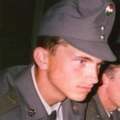
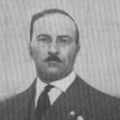
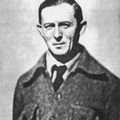
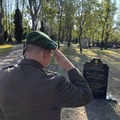
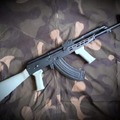
A bejegyzés trackback címe:
Kommentek:
A hozzászólások a vonatkozó jogszabályok értelmében felhasználói tartalomnak minősülnek, értük a szolgáltatás technikai üzemeltetője semmilyen felelősséget nem vállal, azokat nem ellenőrzi. Kifogás esetén forduljon a blog szerkesztőjéhez. Részletek a Felhasználási feltételekben és az adatvédelmi tájékoztatóban.